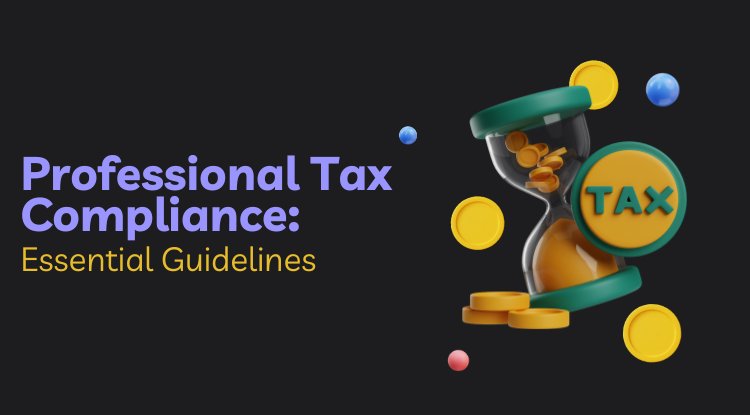Professional tax is a crucial aspect of state-level taxation in India, impacting both employers and self-employed individuals. Ensuring compliance with professional tax regulations helps businesses avoid legal issues and contributes to state revenue generation.
What is Professional Tax?
Professional tax is a state-imposed tax on income earned through employment, profession, or trade. Managed by various state governments, it applies to both salaried employees and self-employed professionals. The tax is governed by the respective state’s Professional Tax Act.
Applicability of Professional Tax
-
Employers: Responsible for deducting professional tax from employee salaries and remitting it to the state government.
-
Employees: Monthly deductions are made based on state-specific slabs.
-
Self-Employed Individuals: Professionals such as doctors, lawyers, freelancers, and consultants must pay professional tax directly.
Key Compliance Requirements
-
Registration:
-
Employers: Obtain a Professional Tax Registration Certificate (PTRC) to deduct and deposit tax on behalf of employees.
-
Self-employed individuals: Secure a Professional Tax Enrollment Certificate (PTEC).
-
-
Tax Deductions and Payments:
-
Employers must deduct professional tax from employee salaries monthly.
-
The deducted amount must be remitted to the state government by the specified due date (varies by state).
-
-
Filing Returns:
-
Periodic returns (monthly, quarterly, or annually) must be filed, detailing employee tax deductions and payments.
-
Importance of Professional Tax Compliance
-
Legal Adherence: Non-compliance results in penalties and legal complications.
-
Revenue Contribution: Supports state development initiatives and public services.
-
Business Integrity: Enhances company reputation by fulfilling tax obligations.
Challenges in Professional Tax Compliance
-
Varying tax rates and slabs across states.
-
Manual errors in tax deductions and filings.
-
Failure to meet deadlines resulting in penalties.
Tips for Professional Tax Compliance
-
Automate Tax Deductions: Use payroll software to ensure accurate and timely deductions.
-
Monitor State Regulations: Stay updated with changes in state tax slabs and due dates.
-
Engage Tax Consultants: Seek professional assistance to handle complex filings and audits.






